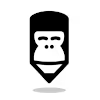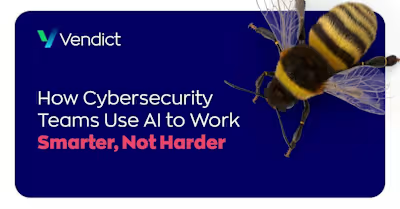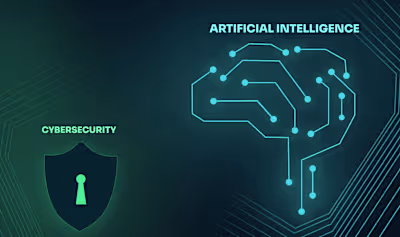Enneagram vs. DISC – which is better for candidate pre-assessin…

Hiring people with the right personalities can ensure they'll fit in with your team and resonate with your company culture.
But trying to figure out someone's personality by yourself can be a guessing game. You might misread cues or get the wrong impression, which can lead to poor hiring decisions. (And that’s not even mentioning the unconscious bias that can sneak in.)
The Enneagram and DISC personality tests can help. The Enneagram dives into what drives a person, while the DISC test shows how they're likely to act at work. Using these tests means you get a clearer picture of who someone is, helping you make better, fairer hires.
Below, we'll explore these tests, explain their mechanics, and pinpoint when to use each for maximum effectiveness.
Table of contents
The Enneagram personality test
The Enneagram Personality test categorizes individuals into nine distinct types, each defined by unique emotional motivations and fears. It offers a glimpse into an individual's personality and worldview, illuminating how they behave in a professional environment.
How the Enneagram test works
The nine Enneagram types have their own specific characteristics and behavior patterns. They’re often depicted in a nine-pointed diagram – the Enneagram – showing how they relate to one another.
Each Enneagram type is complex, with “wings” (adjacent types that influence but don’t change the core type) and levels of development that show how types behave under stress or growth.
For example, Type 1s (the Improver) are principled and logical, but their adjacent wings (Type 9, the Peacemaker, and Type 2, the Giver) can add either a calm or caring demeanor to their personality.
Each type experiences healthy, average, and unhealthy stages, affecting their behavior significantly. Type 1s, for example, might become moody like Type 4s under stress but joyous like Type 7s in periods of growth.
For more information about your candidates’ Enneagram types, explore our in-depth guide.
The DISC personality test
The DISC test is focused on observable behavior and communication styles. It's commonly used in professional and organizational settings to assess and improve work relationships, communication, and teamwork.
How the DISC test works
The DISC Personality test classifies personalities into four primary behavior types: Dominance (D), Influence (I), Steadiness (S), and Conscientiousness (C). Individuals can exhibit characteristics of just one type, such as Dominance (D), or a combination of two, such as Influence and Steadiness (IS).
Each type has a distinct set of behavioral traits. For instance, individuals with a high “D” score typically exhibit assertiveness, enjoy challenges, are result-oriented, and often take a decisive approach in both professional and personal situations.
In comparing Enneagram vs. DISC, DISC doesn't delve deeply into underlying motivations or fears, focusing instead on understanding and predicting observable behaviors in the workplace.
DISC is predominantly used in professional settings for team building, conflict resolution, management training, and workplace communication improvements.
To learn more about each DISC type, read our comprehensive guide on DISC assessments.
How to use personality tests for pre-assessing
Pre-assessing in the hiring process serves as an initial screening stage. It can involve preliminary discussions, such as brief phone calls, reviewing resumes to identify standout candidates, or – our favorite method – pre-employment testing.
Using personality tests like the Enneagram and DISC for pre-assessing, you’ll gain valuable insights into your candidates’ behavioral traits and tendencies. You can better understand each candidate’s suitability for the role, your team, and your company overall, allowing you to make more informed decisions as you move through the more intensive stages of the hiring process.
When to use the Enneagram test during pre-assessing
You can use the Enneagram test during the hiring process to assess candidates’ intrinsic motivations, potential growth areas, and ability to fit into your team's dynamics.
It’s particularly useful after skills tests and before the interview stage. This timing is beneficial because the Enneagram test provides a deeper understanding of a candidate's personality traits and motivations, which skills tests alone can't reveal.
Understanding a candidate’s Enneagram type also offers valuable insights into their potential workplace behavior, communication style, and approach to teamwork and problem-solving. You can then use this information to tailor interview questions more effectively, ensuring a more targeted evaluation of their suitability for the role and your company culture.
Use the Enneagram test to assess candidates for these roles
The Enneagram test can uncover individuals’ psychological motivations and emotional understanding, which is key for certain jobs.
Here are six roles where the Enneagram test might be more beneficial compared to the DISC personality test.
Counselors or therapists: You can identify candidates who are likely Type 2 (the Giver) or Type 4 (the Contemplator), known for their deep understanding of other people’s emotions and motivations, which is essential in counseling.
HR professionals: The test helps you find those with Type 9 (the Agreeable) or Type 6 (the Devoted) tendencies, adept at managing conflicts and understanding complex employee motivations.
Leadership and executive roles: The Enneagram test can reveal candidates who are Type 3 (the Go-getter) or Type 8 (the Master), demonstrating strong self-awareness and leadership capabilities – both key for executive roles.
Coaches and mentors: You can identify individuals with a Type 1 (the Improver) or Type 9 orientation, skilled in personal development and motivating others.
Spiritual or religious leaders: The test helps reveal those leaning toward Type 1 or Type 4 who often focus on personal values and guiding others, which aligns well with spiritual leadership.
Creative professionals: The Enneagram will enable you to spot candidates with Type 4 or Type 7 (the Cheerleader) profiles, indicating emotional depth and innovative thinking, which are strengths in creative fields.
When to use the DISC test during pre-assessing
You should opt for the DISC personality test over the Enneagram when you want to understand and predict a candidate's observable behaviors and communication styles, particularly in a workplace setting. Essentially, the test helps you see how the natural way candidates act will fit with what the job requires.
The optimal time to use the DISC assessment is after reviewing candidates’ job-related skills and before deciding to proceed to the interview stage.
TestGorilla provides straightforward DISC assessment results so you can learn how candidates might act in different work situations. This makes it great for jobs where understanding someone's actions is more important than deep mental or emotional analysis.
Use the DISC test to assess candidates for these roles
The DISC test precisely identifies behavior types (rather than deeper emotional qualities) that align well with the specific requirements of various roles.
Below are five roles where using the DISC test to evaluate candidates can be particularly effective.
Sales professionals: The test can pinpoint candidates who exhibit the Influence type, characterized by strong persuasive communication skills and a natural ability to quickly build rapport with others.
Customer service representatives: You can identify candidates with a high Steadiness type, known for their ability to manage customer interactions patiently and address needs effectively.
Team leaders or managers: The DISC test helps you find candidates with a balanced Dominance and Influence profile, demonstrating the capacity to understand and manage team dynamics and communicate effectively with a diverse team.
Project managers: You can spot candidates with a Conscientiousness profile, which indicates their skill in coordinating with stakeholders, encouraging team collaboration, and executing tasks with precision.
Marketing professionals: The DISC reveals candidates with a notable Influence trait, key for understanding audience engagement and creating impactful messages.
Use a combination of tests for a holistic view of your candidates
In the Enneagram vs. DISC debate, it’s important to remember that each assessment offers different insights into a candidate’s personality. Plus, you don’t have to choose just one test to use. You can combine them for a well-rounded personality assessment where you discover candidates’ internal motivations and external behaviors.
That said, you still must consider if both tests are relevant to your open role’s requirements. For some positions, one test might be more pertinent than the other.
When assessing candidates, regardless of the role, you should combine personality tests with other data-backed talent assessments – including role-specific skills tests, cognitive ability tests, and situational judgment tests.
Why? Relying solely on personality tests for hiring decisions can lead to bias. You might subconsciously prefer certain personality types and end up overlooking diversity and different perspectives that could benefit your team.
Also, these tests don't accurately reflect a candidate's technical skills or judgment. This could result in rejecting candidates who may not fit the preferred personality profile but possess essential job-specific skills.
TestGorilla makes the candidate assessment process straightforward and bias-free. Our library includes hundreds of tests – from job-specific to personality tests, including the DISC and Enneagram tests – to give you everything you need for an effective pre-assessment process.
Uncover candidates’ unique personalities with TestGorilla
Personality tests are a powerful tool to learn how candidates will behave in your work environment and what motivates them to succeed.
The Enneagram and DISC personality tests each offer unique advantages that may work better for assessing specific roles. In a nutshell, the Enneagram test dives into the underlying emotional components that affect individual growth, while the DISC test reveals a candidate’s day-to-day actions and habits at work.
For the most accurate assessment, combine one or both of these tests with other role-specific, cognitive ability, and situational judgment tests – like the ones from TestGorilla. This ensures you get a clear overview of your candidates’ skills and abilities without bias getting in the way.
Improve your hiring with TestGorilla today by requesting a live demo, taking a product tour, or signing up for a free account.
Related posts
Hire the best candidates with TestGorilla
Create pre-employment assessments in minutes to screen candidates, save time, and hire the best talent.
Like this project
Posted Apr 16, 2024
Discover Enneagram vs. DISC for candidate pre-assessing: Learn how each test offers unique insights into candidate personalities and behaviors.









